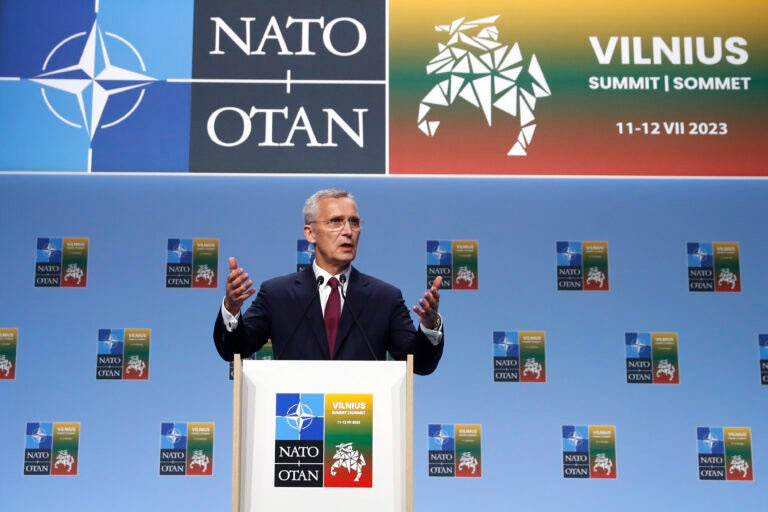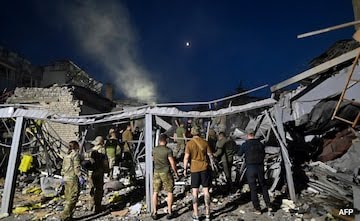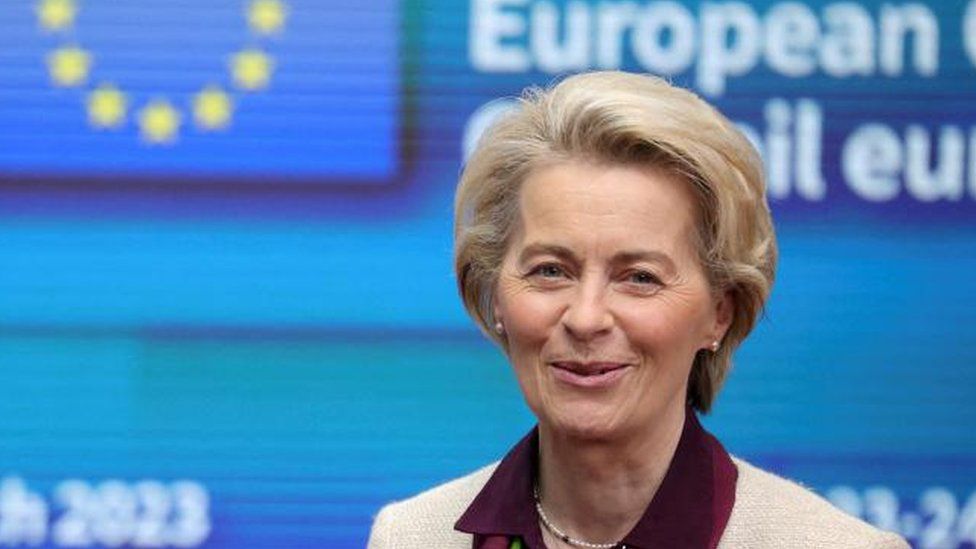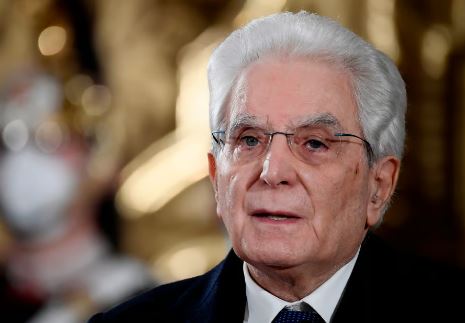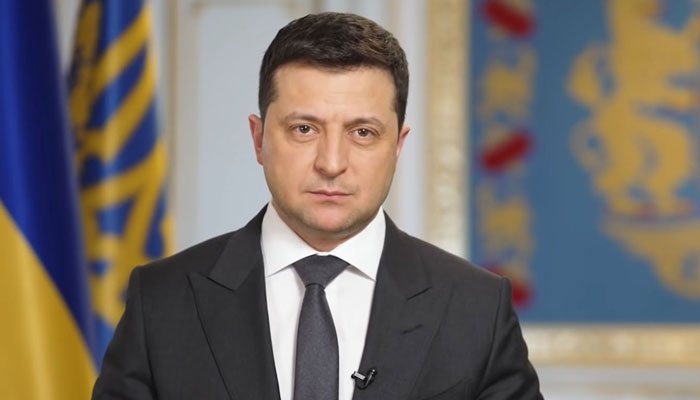NATO leaders said Tuesday that they would allow Ukraine to join the alliance “when allies agree and conditions are met,” hours after President Volodymyr Zelensky blasted the organization’s failure to set a timetable for his country as “absurd.”
“We reaffirmed Ukraine will become a member of NATO and agreed to remove the requirement for a membership action plan,” NATO Secretary-General Jens Stoltenberg told reporters, referring to a key step in joining the alliance.
“This will change Ukraine’s membership path from a two-step path to a one-step path,” he said.
Although many NATO members have funneled arms and ammunition to Zelensky’s forces, there is no consensus among the 31 allies for admitting Ukraine into NATO’s ranks. Instead, alliance leaders decided to remove obstacles on Ukraine’s membership path so that it can join more quickly once the war with Russia is over.
Zelensky pushed back sharply against the decision.
“It’s unprecedented and absurd when a time frame is set neither for the invitation nor for Ukraine’s membership,” Zelensky tweeted as he headed to the annual NATO summit in Vilnius. “While at the same time, vague wording about ‘conditions’ is added even for inviting Ukraine. It seems there is no readiness to invite Ukraine to NATO or to make it a member of the Alliance.”
NATO membership would afford Ukraine protection against a giant neighbor that annexed its Crimean Peninsula almost a decade ago and more recently seized vast swaths of land in the east and south. Joining NATO would also oblige Kyiv to reform its security institutions, improve governance and curb corruption, work that would also ease the country’s path into the European Union.
Asked about Zelensky’s concerns, Stoltenberg said the most important thing now is to ensure that his country wins the war, because “unless Ukraine prevails there is no membership to be discussed at all.”
The broadside from Zelensky could renew tensions at the summit shortly after it saw a burst of goodwill following an agreement by Turkiye to advance Sweden’s bid to join NATO. Allies hope to resolve the seesawing negotiations and create a clear plan for the alliance and its support for Ukraine.
“We value our allies,” Zelensky wrote on Twitter, adding that “Ukraine also deserves respect.” He also said: “Uncertainty is weakness. And I will openly discuss this at the summit.”
Zelensky is expected to meet Wednesday with US President Joe Biden and other NATO leaders.
There have been sharp divisions within the alliance over Ukraine’s desire to join NATO, which was promised back in 2008 even though few steps were taken toward that goal.
In addition, the Baltic states — including Lithuania, which is hosting the summit — have pushed for a strong show of support and a clear pathway toward membership for Ukraine.
However, the United States and Germany urged caution. Biden said last week that Ukraine was not ready to join. Members of NATO, he told CNN, need to “meet all the qualifications, from democratisation to a whole range of other issues,” a nod toward longstanding concerns about governance and corruption in Kyiv.
